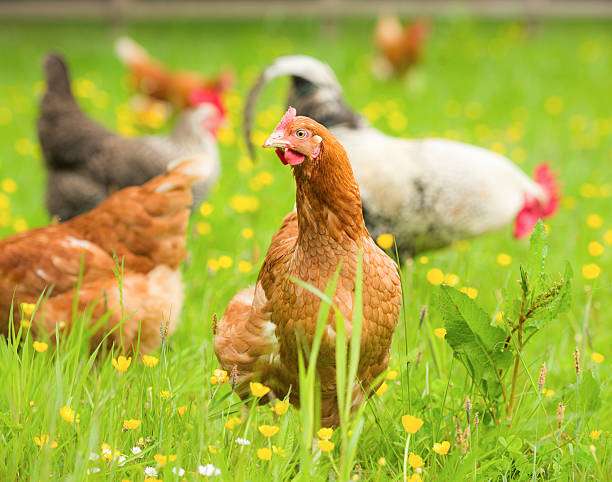
Why Pasture Raised Chicken is Important for Bone Broth
You are what you eat, and so is your chicken. When it comes to bone broth, the quality of ingredients makes a big difference in taste, nutrition, and impact on our world. Choosing bone broth made from pasture-raised chicken isn’t just for better flavor; it can also lead to a cleaner, more nutritious product.
Pasture-raised chickens enjoy fresh air, forage freely, and have a natural diet, leading to richer nutrients and a happier, healthier life for the animals. We interviewed Cameron Molberg, the co-owner of Greener Pastures Chicken to learn more about the unique benefits of pasture-raised chicken, from higher vitamins and healthy fats to the impact on animal welfare and the environment.

Dietary Benefits of Pasture-Raised Chicken
Pasture-raised chickens live a lifestyle that leads to better nutritional value than cage-raised chicken. Here are some of the key dietary benefits:
- Higher Omega-3 Fatty Acids: Chickens raised on pasture have a diet rich in grasses, which naturally increases their omega-3 fatty acid content. Omega-3s support heart health, brain function, and reduce inflammation.
- Rich in Vitamins: Pasture-raised chickens produce meat with higher levels of vitamins A and E, which play important roles in immune health, vision, and cell protection.
- Better Protein Quality: The protein from pasture-raised chickens is considered superior because it’s lean and natural, without added hormones or fillers.
- Antioxidant Benefits: More outdoor time means pasture-raised chickens are exposed to a diet high in antioxidants, which support overall health and wellness. Specifically, vitamin E is an antioxidant that is present in pasture-raised chicken.
Choosing pasture-raised chicken ensures a richer, cleaner source of nutrients that contributes to a healthier, more flavorful broth. Cameron emphasized the importance of this, “The chickens have the benefit of consuming a diverse diet. Grass is really high in fiber, but it’s also got protein and other nutrients.”
Animal Welfare and Pasture-Raised Standards
Animal welfare is one of the biggest advantages of choosing pasture-raised chicken. When chickens are raised on pasture, they enjoy open space and fresh air, key ingredients for a healthier, happier life. Here’s how it compares to other systems:
- Freedom to Roam: Unlike cage-raised chickens, pasture-raised chickens spend most of their time outside, where they can stretch their wings and forage, supporting natural behaviors.
- No Crowded Conditions: Pasture-raised systems avoid the overcrowding and confinement typical of cage-raised or even “cage-free” environments. Less stress means healthier chickens.
- Healthier Living Conditions: Clean, spacious environments allow for healthier chickens, which translates into higher-quality meat with fewer illnesses and lower antibiotic use.
Cameron described the day in the life of a pasture raised chicken, “We move them to a new spot every single day with a mobile coop so that they’re on fresh grass.” He added, “Chickens enjoy being outside because it is a source of entertainment.” There is no doubt that the pasture raised lifestyle creates the happiest, healthiest chicken.
Pasture-Raised vs. Cage-Free vs. Free-Range: What’s the Difference?
You hear about a lot of different labels for chicken products at the store, but what do they mean? Here’s a quick breakdown of the most common terms:
- Pasture-Raised: Chickens spend the majority of their lives outdoors, with a minimum of 108 square feet per bird. This setup allows for natural behaviors like foraging for bugs and plants, creating richer, more flavorful meat with a higher nutrient profile.
- Free-Range: These chickens have some outdoor access, but the space may be limited and not all chickens actually go outside. According to Cameron, “Free range is mostly marketing. The only thing you have to do is offer a couple of doors on a 40,000-square-foot house and the birds, in theory, could go outside.”
- Cage-Free: While cage-free chickens aren’t confined to individual cages, they still live indoors, often in crowded barns. They have limited space to roam and little to no outdoor access, meaning their lives may still be far from natural.

When it comes to choosing the highest-quality and most humane option, pasture-raised stands out as the best practice. That’s why it is so rare, as Cameron points out, “Pasture-raised poultry is a very small segment of the chicken produced in the United States. Realistically, it’s probably sub-1%.”
Why Pasture-Raised Chicken Matters for Bone Broth
When it comes to bone broth, the quality of the chicken is important. Pasture-raised chickens naturally produce more flavorful and nutrient-dense bones and meat, making a richer, more nourishing bone broth. Here’s why:
- Higher Nutritional Value: Pasture-raised chickens consume a more natural diet, including insects and plants. This variety translates into more vitamins (like B12 and E) and omega-3 fatty acids in the bones.
- Cleaner Ingredients: With pasture-raised chicken, you’re less likely to find added hormones, antibiotics, or other unnecessary additives. This results in a cleaner, purer bone broth.
For the best flavor and nutrition, pasture-raised chickens are simply the better choice for quality bone broth that truly supports your health. According to Cameron, “We know there’s a lot of people that want a better quality product, something more nutrient-dense, where the welfare of the bird is a priority.”
Click here to buy Denver Bone Broth’s pasture-raised chicken broth.
Check Out Our Broths
- Choosing a selection results in a full page refresh.


 https://denverbonebroth.com
https://denverbonebroth.com
